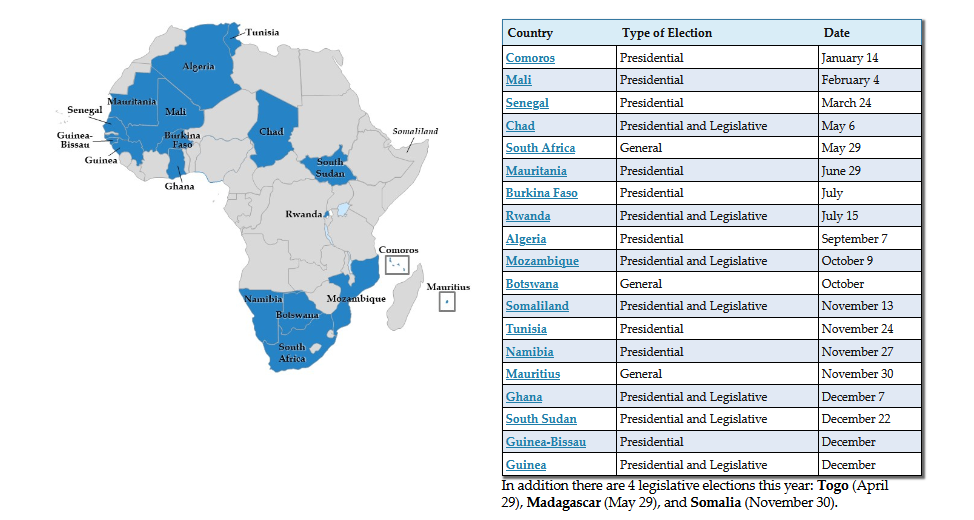In a year bursting with votes, are democracy’s chances about to level up in Africa?
2024 is poised to be a landmark election year across Africa, with an anticipated 180 million people eligible to vote in national polls and numerous local elections. Among those heading to the polls are some of the continent’s most populous nations, alongside smaller countries whose political outcomes could hold significant regional implications. These elections collectively represent a substantial portion of the global population. However, with 44% of the world currently under electoral autocracies, the true story of democracy’s prospects in 2024 extends beyond the sheer number of ballots cast.
Elections serve as crucial mechanisms for ensuring leaders and institutions are accountable to the people. They also trigger periods of intense political competition and collective decision-making that stress-test democratic resilience—the ability to uphold democratic principles and governance despite challenges from illiberal forces. Each election can either reinforce democratic norms or push a country towards instability.
Despite ongoing debates on how best to safeguard against democratic decline, there is a clear imperative for the international community of democracies. We must confront an increasingly assertive cohort of autocrats with greater and more coordinated efforts on three fronts: supporting democratic institutions across diverse contexts, from those facing severe setbacks to those deemed ‘established’; fostering innovation among democracy’s advocates to match the agility of autocratic regimes; and reclaiming the narrative that underscores democracy’s effectiveness versus autocracy’s shortcomings.
Historically, the democracy support community focused on countries that successfully alternated power between political parties across several elections as having ‘consolidated’ their democratic norms and therefore no longer needing extensive electoral assistance. However, recent global Summits for Democracy have marked a shift in perspective. Leaders now acknowledge a complex threat landscape and the non-linear path of democratic progress, emphasizing the need for mutual support among democracies facing diverse challenges.

Meanwhile, modern autocrats are adapting rapidly, using democratic facades while undermining accountability mechanisms. They benefit from formal and informal alliances with other autocracies, creating a resilient network that poses challenges to democracies worldwide.
As African nations prepare for elections in 2024, they must navigate evolving threats, particularly in five critical areas of democratic accountability:
Challenges to Election Management Bodies (EMBs): Attempts to undermine EMB autonomy through political appointments and resource limitations threaten the credibility of electoral processes.
Information Warfare: Manipulated information can sway public opinion more effectively than direct interference in electoral processes, necessitating proactive measures to combat disinformation.
Judicial Independence: Attacks on judicial autonomy weaken democratic checks and balances, crucial during election periods.
Corruption in Politics: Electoral corruption fosters distrust in democracy and opens doors to foreign interference, demanding robust oversight and transparency measures.
Youth Engagement: Declining youth participation in formal democratic processes and a growing preference for autocratic governance models challenge democracy’s future.
Addressing these challenges requires innovative approaches and international collaboration to strengthen democratic institutions and practices across the continent. Each election in 2024 presents an opportunity to learn and adapt strategies that enhance democratic resilience and counter autocratic threats.
In conclusion, Africa’s elections in 2024 are pivotal not only for the continent but for global democracy. By investing in democratic accountability and engagement, African nations can lead efforts to demonstrate that democracy remains the best system to meet the aspirations of its people.


Leave a Reply